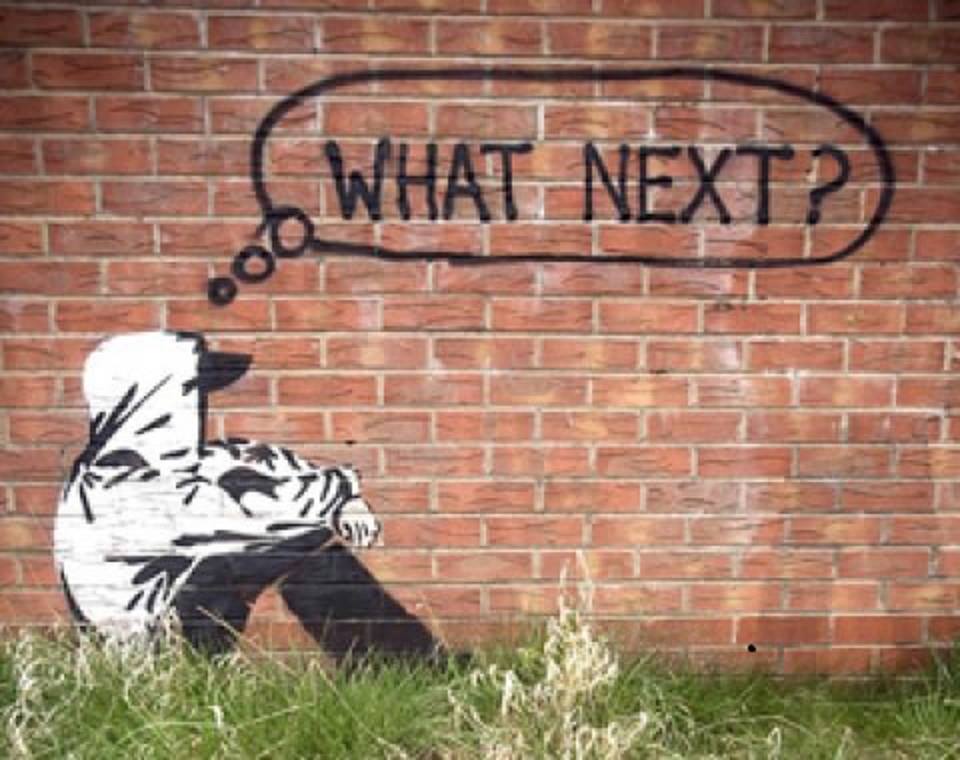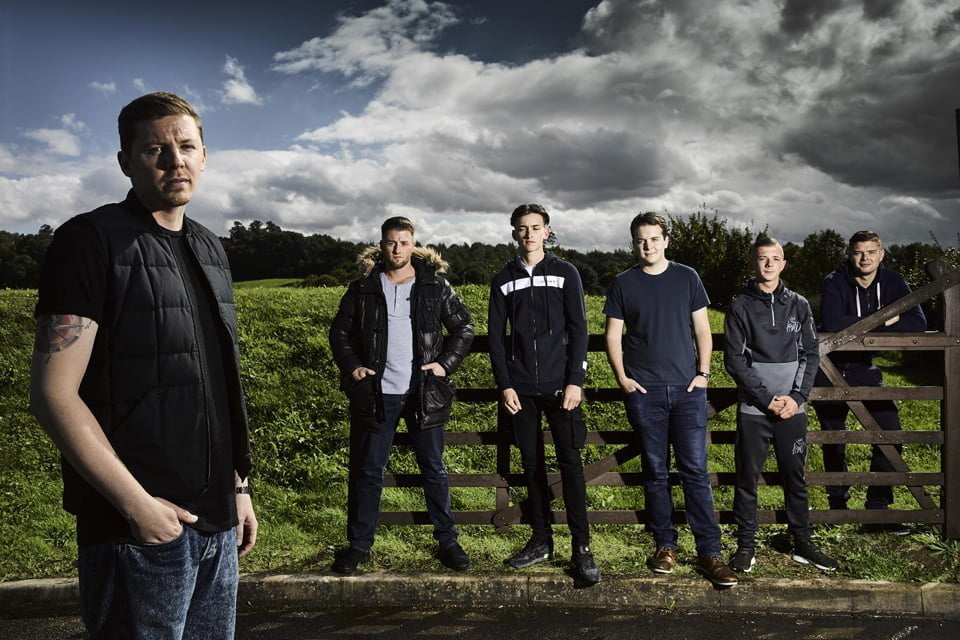Stephen Agnew reviews the recent documentary by UK rapper Professor Green, which provides a revealing insight into the alienation and extreme difficulties facing the working class in broken Britain.
In a recent two-part Channel 4 documentary, British rapper Stephen Mandelson – aka. Professor Green – follows the lives of six white working class men. The TV programme was intended, according to Green, to highlight the “crisis at the heart of working class life”.
The show aims to portray the struggle these men have finding employment and a positive self-identity. It also attempts to challenge the negative way that many men on low or precarious income are viewed by the rest of society: demonised, stereotyped and forgotten.
The rapper told Channel 4 news that he was inspired to make the programme after hearing that white men from low-income families were the least likely to go to university; the most likely to struggle with addiction; and the most likely to enter the prison system than any other demographic in the UK.
The show even states that, “only 15% of white working class boys got five or more decent GCSEs in 2017”. Angela Rayner, shadow secretary for education, made a similar remark in an interview with the Spectator, reiterating the educational attainment gap for working class boys.
Green often comments on how similar his own background was to the men he interviews. He was brought up on a low income in council housing in Hackney, London, by his grandmother, following the suicide of his father and with his mother too young to care for him.
When talking about his own absent father, he said: “it makes you feel like s–t, like it’s your fault. I’d cry and cry every time he didn’t show up. Eventually I stopped crying and started getting angry. Then I pretended to stop caring – but I never did.”
Green does very well as a narrator to highlight the problems that arise in the lives of the working class in modern Britain.
Being stuck
The first episode is entitled: Being Somebody. The three men it documents are all young men who are struggling to find an identity in an alienating and unkind society. The first subject is 20-year-old David from Bolton. Like a quarter of a million men in the UK, he is currently not in education, employment or training (NEET). He was even briefly homeless following the death of both of his parents when he was only 16. Due to a lack of opportunity for employment in the area, David struggles to find regular income and motivation. Green implies that the de-industrialisation of the UK has hit working class men particularly hard. There used to be pride in “jobs, family, and community”, Green states. “Now there isn’t a lot of that left”.
David has been failed by the welfare system. Being dyslexic he cannot read or write, and has no support in finding permanent accommodation or employment. On the fringes of society, David briefly flirts with the far right and attends Britain First rallies. Green attends one of the rallies and is shouted down by the protesters. He tackles their ultra-nationalism by saying.
“If you are angry at anyone, you should be angry at the elite, they are the ones who impose austerity. Direct your anger down that channel … this country hasn’t been good to you, that’s more of a class problem than a race one.”
Speaking of his own experience growing up in a very mixed area, Green says that, “It wasn’t about whether you were white or black, we were all working class.”
One of the other two men documented in episode one is 17-year-old Lewis, a very bright student who is attempting to challenge the “culture of low expectation” and get accepted to Cambridge. Yet it is implied that he is embarrassed of his background and is attempting to hide his upbringing. He develops an idolisation of academia and a fixation on Cambridge University and the life that can adhere to.
Finally there is Denzil, 29, an inexperienced entrepreneur who idolises get-rich-quick schemes and attempts to make a living through wheeling and dealing and throwing illegal raves. It is even suggested in the show that he fakes a whiplash injury for the insurance payout.
Green finishes the episode by saying:
“I’ve been thinking about what it means to have working class values. It feels like having a certain set of insecurities really. A lack of self worth, It’s a lack of ownership, instability, uncertainty. It’s being stuck.”
Running to stand still
 In the second part, entitled Family Men, Green attempts to show how working class life can put a strain on familial relations. In addition, he discusses how working class men can feel unrespected and devoid of status.
In the second part, entitled Family Men, Green attempts to show how working class life can put a strain on familial relations. In addition, he discusses how working class men can feel unrespected and devoid of status.
29-year-old Gav has just been released from prison. He’s spent two-and-a-half out of the last four years in prison for growing and selling cannabis. He speaks with regret about his “broken relationship” with his 11-year-old son, and how a life on low wages, struggling to get by, is the reason he turned to crime. “I hated working so hard all the time, just making ends meet, just trying to support myself”.
The episode does well to portray the difficulty of finding work after coming out of prison. Over 50% of inmates reoffend within a year of their release, as getting a job is “borderline impossible”.
One of the other two men documented in the episode is Karl, also 29. He is an unemployed roofer and amateur boxer, who after recovering from a drug problem is trying to be a good stepfather to his bipolar partner Kim’s three children. She is now expecting his baby.
And lastly there is 17-year-old Jake, a labourer who dreams of being a model and needs his family for support, especially whilst doing unpaid work.
Green argues that the biggest issue facing working class men is work itself – or, more correctly, the lack of work.
“When industry was thriving and working class people had a more defined path. The stereotype nowadays is living off benefits. What happened to the old-fashioned grafter?”
The system has failed
Although the documentary series is far from perfect, as a whole it is generally positive. It does well to portray working class people in a more accurate, sympathetic and understanding way, rather than resorting to the usual media biases, stereotypes and condescending attitudes. It should be praised for raising important issues, such as unemployment, alienation and the effects of austerity.
It has its flaws, however. It tends to romanticise a bygone past and an image of a contented industrial worker that never really existed.
At times it even borders on dividing the working class. The documentary occasionally implies, for example, that the assistance given to people of ethnic minorities and working women have been to the detriment of white working class men.
A socialist approach, in contrast, must highlight the oppression of all working people under capitalism. Workers of all genders and ethnicities need to unite against the common enemy: the bosses and bankers and their Tory political representatives.
Importantly, we must draw revolutionary conclusions. The whole system has failed and cannot simply be patched up. There can be no return to rose-tinted past. Everywhere we look, the gains of previous generations are now under attack: from jobs and wages, through to pensions and the NHS. The only way forward is to fight for a socialist alternative.
Of course the programme falls short of this. But the fact that a show of this nature has been aired on Channel 4 during prime time is an indication of the fraught times we live in – and a reflection of the anti-establishment feeling that is brewing underneath the surface of society.






